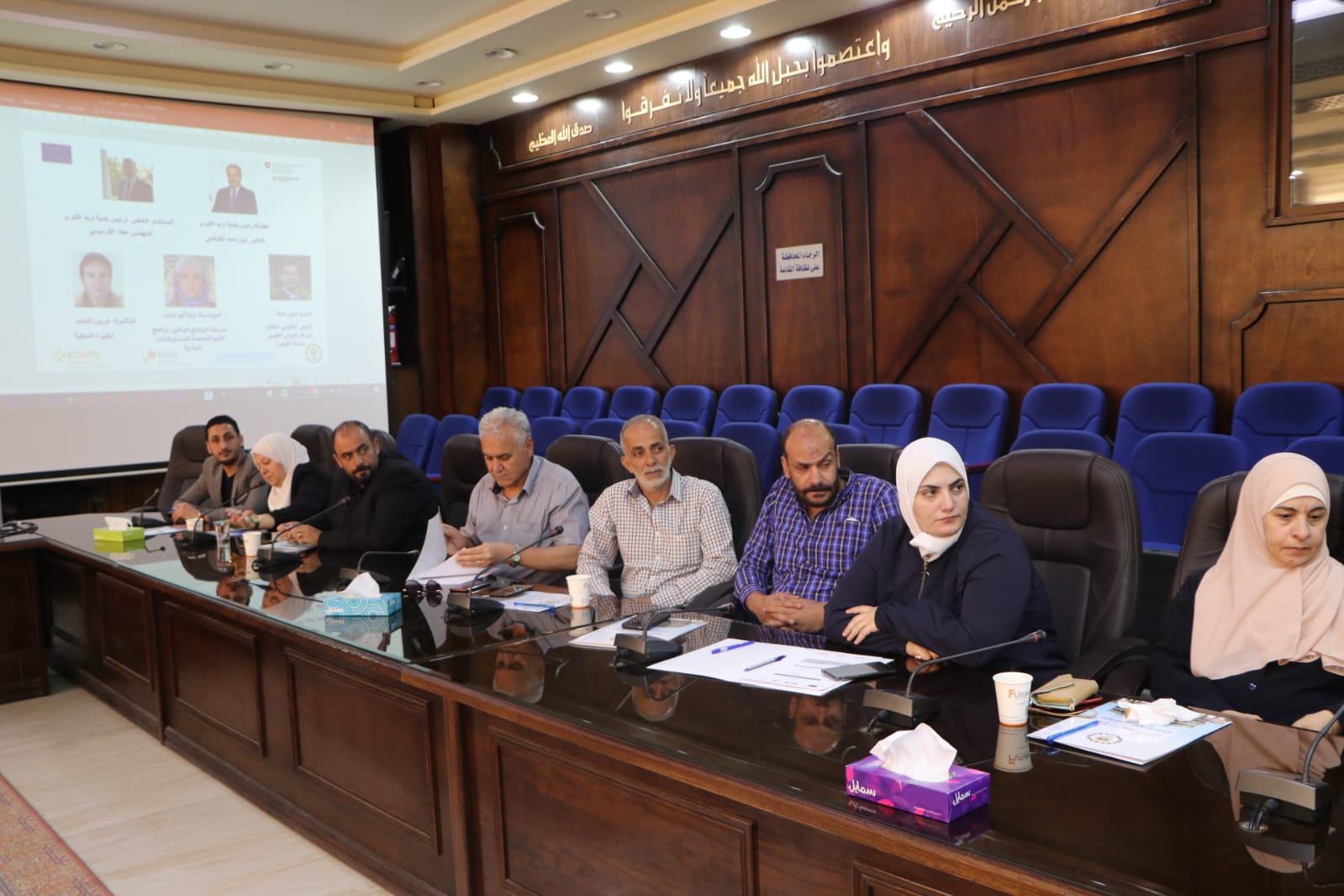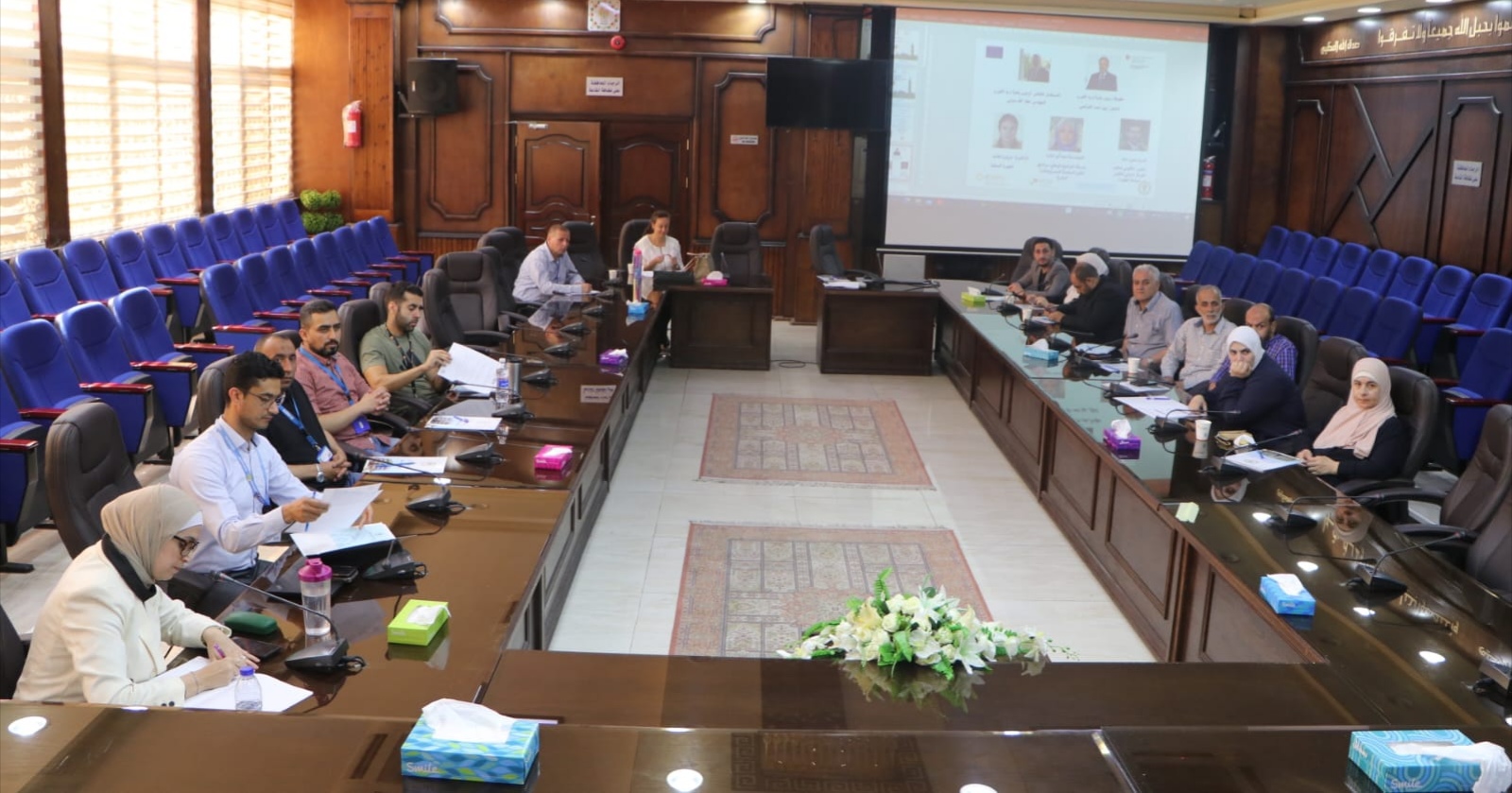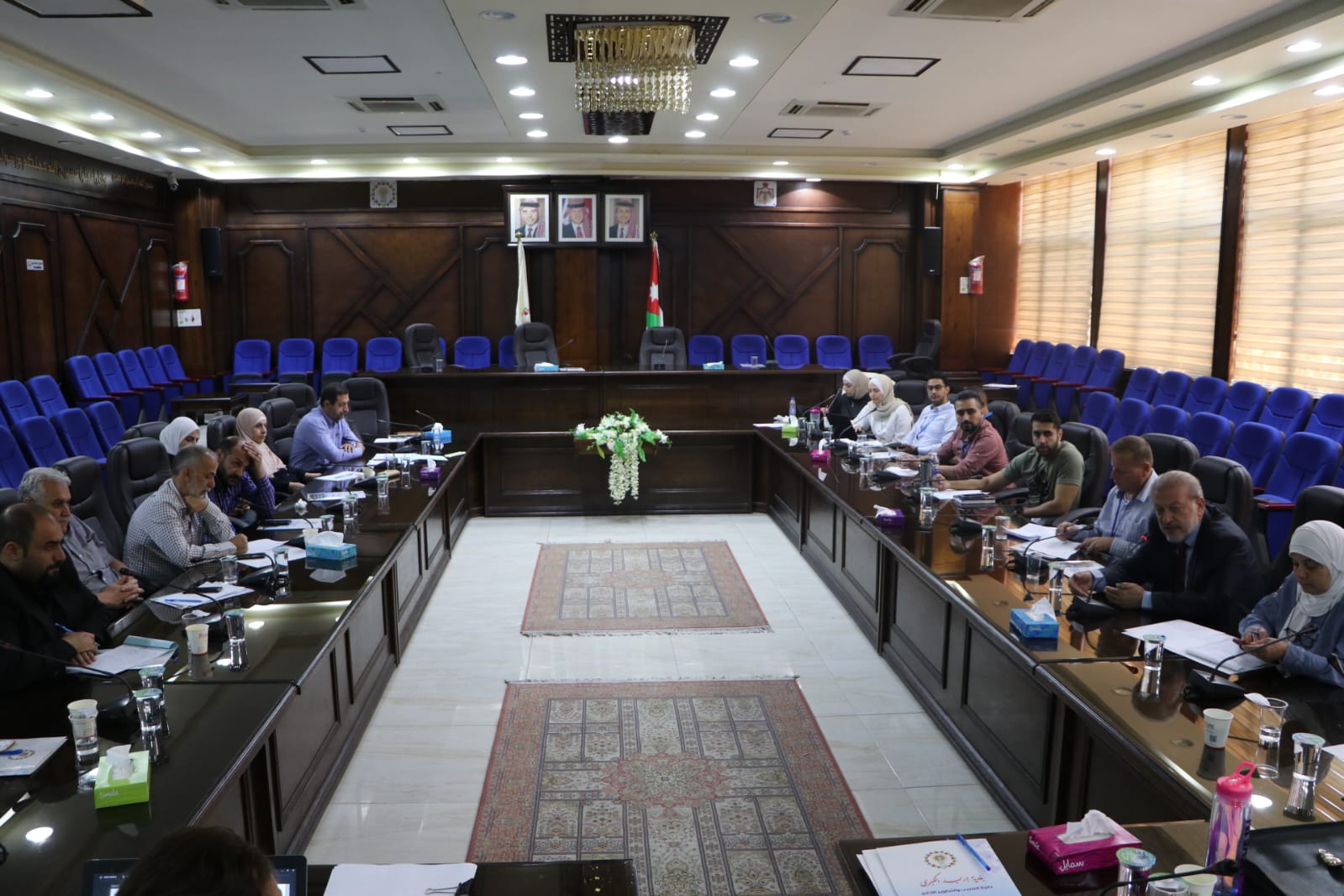
The Refugee, Displaced Persons and Forced Migration Studies Center participated in a workshop for stakeholder groups within the Project of Migration among the Mediterranean Cities (Dialogue, Knowledge, Work). This workshop entitled "Urban Challenges and Opportunities in the Mediterranean Region General Policy Recommendations".
The workshop, which was held in the Greater Irbid Municipality, included several axes of discussion. The most highlighted ones are: the status of migration, current developments, immigrants, human rights, the access to services, policies, initiatives of integration and complementary.
The director of the center, Prof. Reem Al Kharouf, said that Yarmouk University is one of the first national institutions that took care of the asylum file, displacement and forced migration. This is through the foundation of the refugee studies program in 1992. Afterwards in 1997, the center was established to be the first center in the Arab region and the Middle East which is specialized in asylum, displacement and forced migration issues. Its vision involves supporting decision makers and the researchers who are interested in those areas. This is by conducting studies, qualitative research, surveys and the implementation of the related projects as a national and regional research reference.
Al-Kharouf said that, more than 10 years after the Syrian asylum crisis, experts and specialists should head to the perspective studies aiming at reaching treatments and solutions which are based on experience and analysis. In addition, they should accurately link between the reality of the situation and the paces towards the future regarding to education, health and the necessary infrastructure services over the next 10 years.
She also emphasized that the future plans must be comprehensive and clear as well as moving beyond the reality of the situation towards an innovative and creative future contributes to solving problems, developing capacities and building real opportunities to address all the negatives associated with crises and emergency issues.




